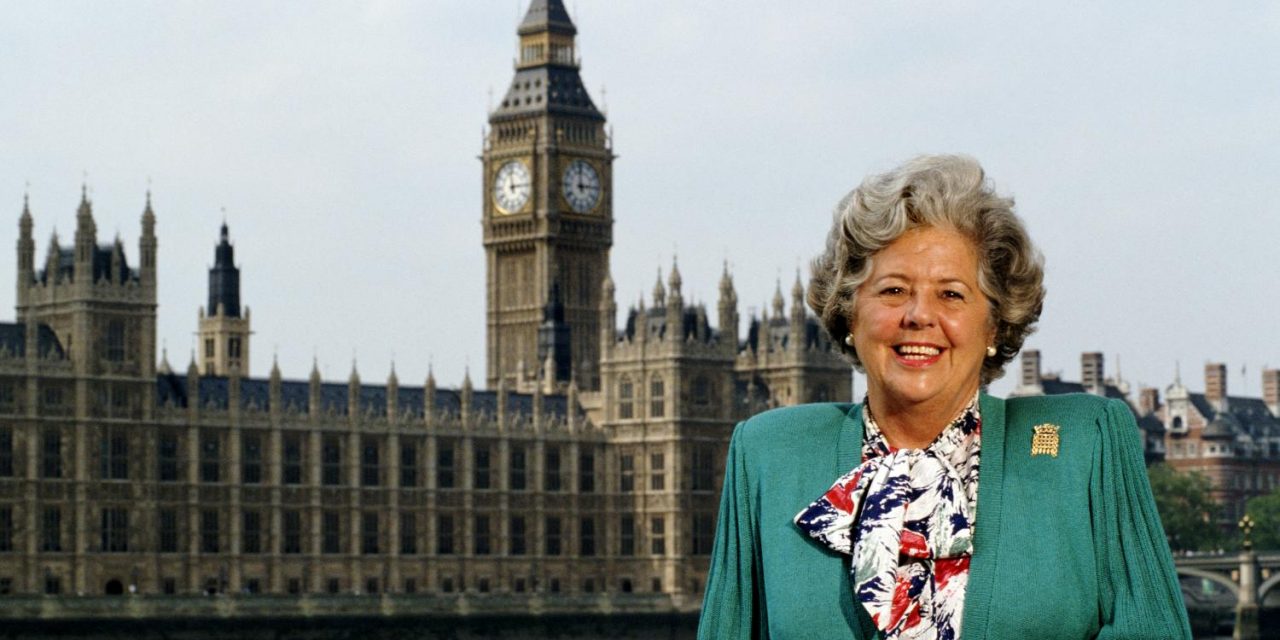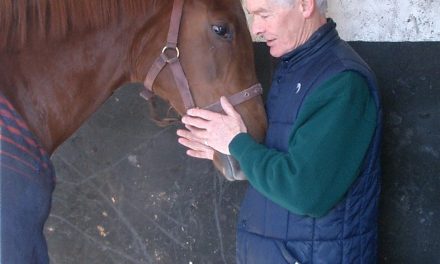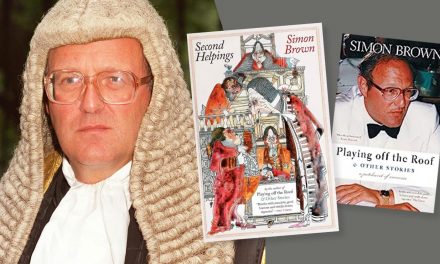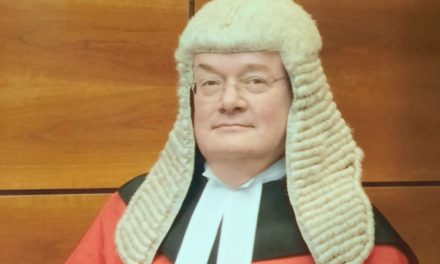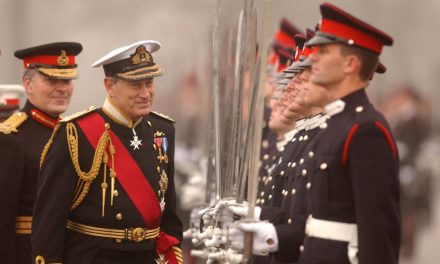Betty Boothroyd was the first female Speaker of the House of Commons. That alone would be enough to ensure her place in political history, but she was also one of the most popular occupants of the Speaker’s extremely large and uncomfortable green chair. Being a woman of practical disposition, she placed a copy of the political bible Erskine May on it so that she could remain upright during debates.
Other Speakers served for far longer than Boothroyd’s eight years (1992-2000) or left a more lasting imprint on the conduct of the House, but none who came before her was so widely known or liked among those with little interest in politics. For this she had to thank television and her own sense of theatre, not to mention her natural voice projection. ’I never wanted silence in the House,’ she said. ’I never wanted a morgue. I wanted a debating chamber.’
She was not the first televised Speaker. The cameras had been allowed into the House, on sufferance at first, in 1989 but Bernard Weatherill, then in the chair, was naturally reticent and never achieved in the country the reputation he enjoyed at Westminster. Television had already been preceded by regular radio broadcasts and when these were introduced in 1978, George Thomas, the Speaker with mellifluous Welsh tones and what to many listeners was the novel cry of ‘order, order’, enjoyed considerable popularity.
But neither of them inspired the widespread fame and affection gained by Boothroyd. It must have been with some difficulty that Tony Blair did not describe her in his valedictory tribute as ‘the people’s Speaker’. He called her instead ‘something of a national institution’.
She was also well known abroad. Her frequent official visits to foreign parliaments as an enthusiastic ambassador for the Commons naturally produced considerable publicity in the many countries she visited, but she was best known in the United States, where public service broadcasting regularly featured proceedings at Westminster. On one occasion, early in her speakership, she was shopping in a Florida supermarket when a group of women surrounded her asking for her autograph and said: ‘you’re the Englishwoman who won’t wear the wig.’
That refusal to wear the Speaker’s traditional wig had wide publicity all over the world, seen as proof that the first female Speaker would also be the first to bring a new atmosphere into the House. In fact, there was a more practical reason: she had decided long before her election that the wig would be too hot and heavy, and an uncomfortable distraction from what she knew would be a demanding role. Criticism of her action soon disappeared when it was realised that in the end it hardly mattered as her mass of white-grey hair might just as well have been the actual wig.
In fact, this was one of the few traditions she was prepared to abandon and, despite having been elected a Labour MP, she proved to be a conservative Speaker. Her concessions to modernisation were few. When, against her wishes, Blair arranged for the twice-weekly Prime Minister’s Questions to be reduced to only one day a week, she retaliated by doubling the number of questions afforded to the leader of the opposition.
She remained basically an old-style parliamentarian who spent 27 uninterrupted years in the House from her victory in a 1973 by-election. As she said in a speech seeking that victory, having already worked as a secretary for the Labour MPs Barbara Castle and Geoffrey de Freitas: ’the Commons has not just been my career. It has been my life.’ It was therefore predictable that she would not show undue sympathy to those who wanted to change Commons procedures to make them fit better into their private lives. ‘The Commons is not a nine-to-five job,’ she said, pointing out that long hours were often necessary to curb the executive and to oppose or alter legislation.
Her reluctance to make the Commons more family-friendly caused some disaffection among the so-called Blair Babes, the unfortunate sobriquet that persisted even though the 1997 crop of female MPs contained a number of seasoned and able politicians. There were complaints that she knew nothing of family pressures. Her answer was that she knew a great deal more about parliament. It had taken her 17 years, two general elections, three by-elections and numerous unsuccessful selection conferences before she managed to enter the chamber in the first place, and this undoubtedly affected her attitude to those who she considered had had an easier road. Feminists said that she had done nothing to help the women’s cause. Her answer was that women had done nothing to help her either.
Like almost all Speakers, her impartiality was occasionally questioned. Her two Labour predecessors, Horace King and George Thomas, had both been accused of favouring the Conservatives to demonstrate distance from their former party. She was determined to avoid this trap, though some Tories were known to keep a list of what they thought were pro-Labour decisions. Labour in government thought in turn that she granted emergency debates too easily, while some were convinced she gave too much latitude to long-term internal party critics such as George Galloway on Iraq, and Tony Benn on almost everything. Officials inside Speaker’s House, however, thought she was, if anything, overly conscientious in her determination to be even-handed.
She could show great courage on occasions, deliberately risking a charge of partiality when her principles demanded. In 1993, for instance, she overruled a decision by her deputy, Michael Morris, and decided in favour of a Labour motion to debate the European Union’s social chapter on workers’ rights. Here was a motion that the government, confronted with opposition parties as well as its own Eurosceptics, definitely did not want. Boothroyd, however, stood up to great pressure and ensured there was a debate on what she considered was a matter of national significance.
The biggest embarrassment of her speakership was provided by Michael Mates, who had resigned from the Conservative government in 1993 over his support for Asil Nadir, then a refugee in Northern Cyprus after jumping bail from criminal charges in Britain. By convention, a resignation speech is never interrupted. Boothroyd was convinced she had received assurances from Mates that his speech would not trespass into judicial matters. Instead, his speech became controversial. Time and again Boothroyd tried to interrupt him and each time he continued. In effect, he defied the chair. Afterwards Boothroyd admitted she should have probably had him removed from the chamber. But on the day, he won and she was humiliated.
She took care to make this an isolated occasion, and normally she was in complete command of the House. She never pretended to be an intellectual but determination, wit, ambition and a careful study of Erskine May usually saw her through. Her personality — a combination of warmth, exuberance and a strong sense of the importance of her position — was well suited to the needs of the House at that time. Sketch writers often referred to her barmaid-ish charm, but here she had only herself to blame. Her cry of ‘time’s up’ to signal the end of Prime Minister’s Questions was a deliberate gimmick. What was spontaneous, however, was her reply to an MP who asked her how she should be addressed. Her request that they ‘call me madam’ had occurred long before she was Speaker, when she was a deputy speaker. She always professed surprise at the publicity given to it. She may have had an Ethel Merman musical comedy at the back of her mind but thought her answer was obvious. How else should she have been addressed?
Her success in becoming a national figure — a newspaper poll once showed that its readers made her their preferred alternative to the Queen as head of state — was matched by the marginalisation of the Commons during her time as Speaker. Although she was elected partly through her pledge to sustain the rights of backbenchers, her years in office were marked by the growing power of the executive, helped during the Blair governments by the submissive character of many of the 1997 and 2001 intake of MPs.
The authority of the legislature diminished as the influence of the debating chamber shifted, primarily to Downing Street but also to the television and radio studios. Policies that were previously announced in the Commons, and theoretically still should have been, were leaked in advance quite openly in broadcasts such as the BBC’s Today programme. Boothroyd regularly called in prime ministers and whips to complain. Assurances were always given but the practice continued. She once said ruefully: ‘Any day I expect to get a complaint from the Today programme that something has been announced in the House before it came out in their programme.’
Not that she was averse to television and radio stations herself. Keen to get young people interested in politics, while Speaker she made an appearance as a special guest on the BBC Saturday morning children’s programme Live & Kicking. And she certainly knew how to use her high media profile against those who dared to cross her. After she had suspended Ian Paisley, founder of the Democratic Unionist Party, for unparliamentary language, he told her, a little gloatingly: ;I got the front page of the Belfast Telegraph, and you got page three.’ She was unperturbed, saying with a shrug: ‘I’ve never been a page three girl before.’
Such was her even-handedness; she also took the Sinn Fein leader Gerry Adams to task. When she refused to allow him to use Commons facilities unless he swore a parliamentary oath of allegiance, he asked her what he should tell the journalists waiting outside. ‘You tell them exactly what I have told you,’ she said. ‘The fat old girl in there is immoveable.’
Born in 1929, the year Ramsay MacDonald formed his minority government, she was christened Betty Boothroyd — she was never Elizabeth — and grew up in her birthplace, Dewsbury, a West Yorkshire mill town noted for producing ’shoddy’, an inferior type of cloth. She insisted, however, that there was nothing shoddy about her impoverished childhood in a back-to-back terraced house. Her father, Archibald, was often out of work, but careful management meant she was never conscious of deprivation. Her mother, Mary (née Butterfield), like her father, was a textile worker but found work more easily because women’s wage rates were lower. The careful habits Boothroyd learnt at the time remained with her. At Speaker’s House she was known to tour empty rooms to turn off the lights.
Boothroyd was fond of saying that she came straight from the womb into the Labour movement. Her home housed ward meetings and was a canvassing centre at election times; her first political activity was delivering party leaflets. Her childhood was spent in the years of what her parents called ‘the great betrayal’, when MacDonald was expelled from the party after forming a national government.
She was brought up in the Depression years, living under the shadow of unemployment and the coming war.
Her father was the dominant figure in the family. He was 44, 16 years older than his wife, when Boothroyd was born. She retained many of the traits of an only child who had been the centre of her father’s life, but she stopped short of being spoilt. Her early interest in boys was strictly policed. When she went to dances, her father would stand at the corner of their street to see her safely home.
She failed her 11 plus, but this was not regarded as a disaster. Instead, she was considered lucky to obtain a place at Dewsbury’s commercial college. Her father was delighted: it meant she would learn typing and could get a pensionable job with the council.
Boothroyd, however, had other ideas. She wanted to be a department store window dresser. But, even more important, there was dancing. She had danced since she was a little girl. When she was old enough, her mother found the money to send her to a local dance school.
She was a star there from the beginning. As a teenager she became ’principal boy’ for three successive years in Dewsbury’s Christmas pantomime. During the war she toured local airfields and camps as a singer and tap dancer with an amateur band called the Swing Stars. She did well enough to gamble on a showbusiness career. As soon as she was 17, she left Dewsbury for Soho, and had some success. She danced at the Palladium and was given another engagement in less glamorous Luton.
Whether she was actually a Tiller Girl, a member of the famous troupe, remains a mystery. Some Tiller Girls said they thought they remembered her, while others said she was the wrong height to have been one of them. She certainly never discouraged her description as a former Tiller Girl. In any case, she soon realised she would never be as big a star in London as she was in Dewsbury. Then she developed a poisoned foot. Within months, she was back in Dewsbury working as a shorthand typist.
By now she had another aim. Her interest in politics, fostered in her home life, was strengthened further by winning a speaking contest organised by the League of Youth, Labour’s answer to the Young Conservatives. In 1952 she invaded London again but this time it was in Westminster, not Soho, and this time it was for good.
She worked first as a secretary at Transport House, then Labour’s party headquarters. Soon she moved to the Commons. At that time Labour was bitterly divided between followers of the left-wing Aneurin Bevan and the more centrist Hugh Gaitskell. Boothroyd began as a Bevanite and a member of Ian Mikardo’s Second Eleven, formed to get promising left-wingers into the House. In her new employment she rode both horses with equal devotion: she worked jointly for Castle, heroine of the left, and de Freitas, a barrister whose politics were just as far to the Labour right as Castle’s were to the left.
She took a sabbatical to campaign for John F Kennedy at the 1960 US presidential election. ‘I went as an immigrant, £200 in my purse and a return airline ticket just in case,’ she recalled. ‘I ended up working on Capitol Hill, earning more than a British MP did at that time. Can you believe it?’
Back in the UK, Boothroyd studied the work of an MP and decided she could do it as well as most. By the time she was 30, she had fought two parliamentary elections entirely through her own efforts and with the active discouragement of party managers. It took her another three elections before she entered the House at last as MP for West Bromwich in 1973 (West Bromwich West from 1974). In between she had spent two years in Washington as an aide to the Maryland congressman Silvio Conte, a Republican of the party’s liberal northern tradition.
Upon her return to Britain she worked for Harry Walston, a millionaire socialist farmer and politician. He valued her sufficiently to give her a country cottage, the run of his Albany apartment and entry into high political and artistic society. A newspaper once suggested she was more than an aide to Walston, but Boothroyd rebutted this and his son, Oliver Walston, who remained a close friend, described his father’s relationship with her as close but not intimate.
Her Commons career was steady but far from spectacular. She became a government assistant whip and later was appointed a member of the European Parliament. For four years she served on Labour’s national executive as a strong party right-winger, despite her earlier involvement with the Bevanites. In 1987 came the step that would determine the rest of her career: she was appointed second deputy chairman of ways and means, which meant she was a deputy speaker. She realised she was unlikely to figure largely in any later Labour government and started to think of becoming Speaker herself.
Weatherill told her in 1991 that he would be leaving the Commons at the end of the parliament. She had already begun a discreet campaign. Lady de Freitas, widow of Boothroyd’s former employer, was hostess at a number of meetings of potential supporters in her Westminster flat. MPs such as George Robertson and Giles Radice now sounded out support in the House. Neil Kinnock told her that if Labour won the 1992 election, she would have the party’s total support. Unfortunately for Kinnock, his party lost to John Major’s Conservatives, who claimed a slim majority.
Boothroyd’s speech seeking election as Speaker, already written, was recast to appeal to Conservative MPs, particularly newcomers. This tactic was highly successful. She estimated she needed 30 Tory votes and in the event she secured 72, including eight ministers. She refused to seek a feminist vote, saying: ’elect me for what I am and not for what I was born.’ Her majority of 134 over a Conservative opponent gave her a position of greater strength than if she had been unopposed, which was then the custom. The result was greeted by a burst of clapping, which she promptly quelled as unparliamentary.
She was also clapped when she announced her retirement in an emotional speech in July 2000. These twin breaches of Commons procedure summed up her popularity.
She had a number of male friends and numerous proposals but, as she once said, politics always seemed to get in the way of marriage.
In 2001, she was created a life peer and her autobiography was published in the same year. When she found she didn’t have a desk in the Lords, she told the chief clerk that if he did not act, she would hold a press conference and tell the country how badly she had been treated. The tactic worked and an office was found.
In 2005, she joined the select band of distinguished people who have OM after their names, the Order of Merit being an appointment that was in the personal gift of the Queen.
Remaining physically active, she took up paragliding in her sixties. She also indulged her unusual interest in lighting by becoming a fellow of the Society of Light and Lighting.
In January 2019, at the age of 89, she showed she had lost none of her sense of theatre. On the eve of a crucial Brexit vote, she told the Lords that Harold Wilson believed anyone who claimed that membership of the European Community was a black and white issue was ‘either a charlatan or a simpleton’. After a pause, she added: ‘this brings me on to Boris Johnson.’
Baroness Boothroyd OM PC, Speaker of the House of Commons, was born on October 8, 1929. She died on February 26, 2023, aged 93.
Reproduced with kind permission from The Times

